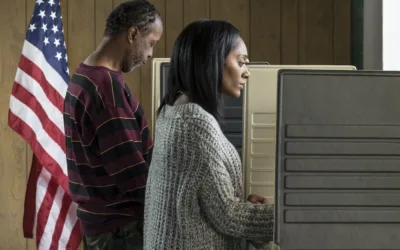
#image_title
Tiffany and Grothman vote against Confederate statue removal while Johnson holds up a Juneteenth holiday bill.
Three of Wisconsin’s Congressional Republicans, Sen. Ron Johnson and Reps. Tom Tiffany and Glen Grothman, voted Wednesday against bipartisan bills that would have moved forward the push for racial justice in the wake of mass protests against racism and police brutality.
In Johnson’s case, he was the sole objector to making Juneteenth — the day that commemorates the end of slavery — a federal holiday by passing a bill through unanimous consent. He previously supported the bill, but only if Columbus Day was eliminated as a cost-saving measure. After Johnson was the subject of major conservative backlash for proposing the elimination of Columbus Day, he flip-flopped and argued that federal employees should receive less paid leave instead.
Tiffany and Grothman, meanwhile, found themselves on the losing side of an overwhelmingly bipartisan vote to remove Confederate statues from the U.S. Capitol. Wisconsin Reps. Bryan Steil and Mike Gallagher were among 72 House Republicans who voted in favor of the bill, while Rep. Jim Sensenbrenner did not cast a vote.
Wisconsin, historically known as a Petri dish for progressive ideals, was not part of the Confederacy. However, there are still some Confederate monuments scattered throughout the state due to some ties both loose and direct.
Republicans and Democrats alike have made the removal of Confederate statues a political lightning rod amid the mass protest movement sparked by the death of George Floyd in Minneapolis. However, the proposal for Juneteenth to become a national holiday has not met any notable resistance.
Protesters across the country have torn down Confederate monuments and statues of Christopher Columbus, while elected officials have also voted to formally remove them, on the grounds that the prominent display of such statues gives the implication that the heinous actions of those individuals are revered.
Led by President Donald Trump, some Republicans have vowed to defend the statues, saying they represent the nation’s history and should still be displayed even though Confederates were traitors to the United States. Senate Majority Leader Mitch McConnell, R-Kentucky, is unlikely to bring to a vote the bill to remove Confederate statues from the Capitol.
McConnell said the decision should be up to individual states, who are the ones that provide the statues in question for the Capitol.

Opinion: Many to thank in fair maps victory for Wisconsinites
On February 19, 2024, Governor Tony Evers signed into law new and fair state legislative maps, bringing hope for an end to over a decade of...

Opinion: Empowering educators: A call for negotiation rights in Wisconsin
This week marks “Public Schools Week,” highlighting the dedication of teachers, paras, custodians, secretaries and others who collaborate with...

Op-ed: Trump’s journey from hosting The Apprentice to being the biggest loser
Leading up to the 2016 election, Donald Trump crafted an image of himself as a successful businessman and a winner. But in reality, Trump has a long...

Not just abortion: IVF ruling next phase in the right’s war on reproductive freedom
Nearly two years after the US Supreme Court overturned Roe v. Wade, another court is using that ruling to go after one of the anti-abortion right’s...




